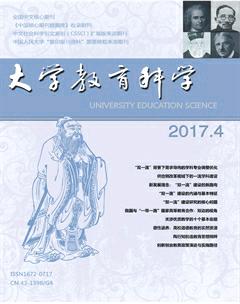Ten Fundamental Propositions Concerning High Quality Teaching
LI+Li-yun
Abstract: Professor Zhang Chuting is a famous educator in China. He was born in Indonesia in 1937 and graduated from Hunan Normal University in 1959. He was the President and/or Party Secretary of Hunan Normal University for 18 years. He was the President of Hunan International Economics University, a private university for 12 years. He worked in education for 50 years, offering 25 courses; with 121 works (more than 90 of them are monographs). He also published 1346 papers, 1208 poems and made more than 650 academic lectures all over the country.
Profesor Zhang published many works, including Mathematics Education Psychology, The Teaching Principles, One Hundred Topics on Detailed University Teaching Principles, University Teaching Theory, Teaching Methodology, Elaborate exposition of Five-I's Teaching , and so on . In his book, Teaching Methodology, Published in 1999, he summed up the teaching principles of analysis and synthesis, induction and deduction, speculation and argument, intuition and logic, image and abstract, commonness and individuality, perceptual and rational, precision and fuzziness, theoretical assumption and empirical test, order and chaos, how and why, respect and blind conformity, testing students and testing teachers themselves, individual and whole, explicitness and implicitness, faith and doubt, pros and cons, following 51 kinds of relationship and categories and presenting the complexity of teaching. In his book University Teaching Theory, published in 2002, Profesor Zhang put forward his six teaching principles, such as seeking for comprehensive knowledge structure, mainly talking about the thinking approaches , strengthening the students' participation, studying combined with the research , guiding choosing freely, laying stress on mental harmonious development of university teaching in terms of critical inheritance and development of curriculum theories deriving from foreign scholars such as Karav, Bloom, Bruner and domestic scholars such as Pan Maoyuan, Wang Weilian, Li Dingren. These principles system fully consider the difference between university teaching and primary and middle school teaching, which reflects the uniqueness of university teaching. In addition, Profesor Zhang Chuting also published some important papers about teaching, such as Teaching Method and Teaching Philosophy , Re-discussion on Relationship between Teaching and Scientific Research, Discovering Learning and Teaching, Meta-learning Concept and Its Significance in Teaching Theory.
The teaching theory he founded or the pedagogical thought he advocated has advanced nature, which is embodied in human nature and practicality. His teaching theory is geared to the needs of high quality teaching; applying the following ten aspects, Professor Zhang Chuting advocated teaching ideas to achieve high quality teaching: the "cultivating the great human nature" as the core of the teaching purpose, reaching the "metaphysical" as the level of the university teaching should have, stimulating "reflexivity" to help students achieve better development, encouraging confidence to improve their psychological quality, expanding the thinking space by using multi-purpose probability propositions ", obtaining the real learning by "learning to ask questions", harvesting freedom and creation by respecting intuitions, telling stories to stimulate students interests, standing to deliver lectures is to let passion and thought flow, practicing five-I's teaching (Information, Interest, Inquiry, Intuition, Intelligence)is to perfect “I”.
As both the concept of curriculum and the concept of teaching, the concept of "five-I's curriculum" established by Professor Zhang is a high concentration and generalization of a lot of his pedagogical ideas, which has rich philosophical connotations. The Humanistic nature and practicality is well beyond the principles of Taylor's principle and the Four-R's courses created by Doll. Professor Zhang has fully implemented his teaching theory in teaching and speech activities, thus influencing countless students and audiences in a positive sense.
Key words: high quality teaching; basic propositions; Zhang Chuting; Zhang's style; humanism; teaching theory; five-I's curriculum conceptualization

